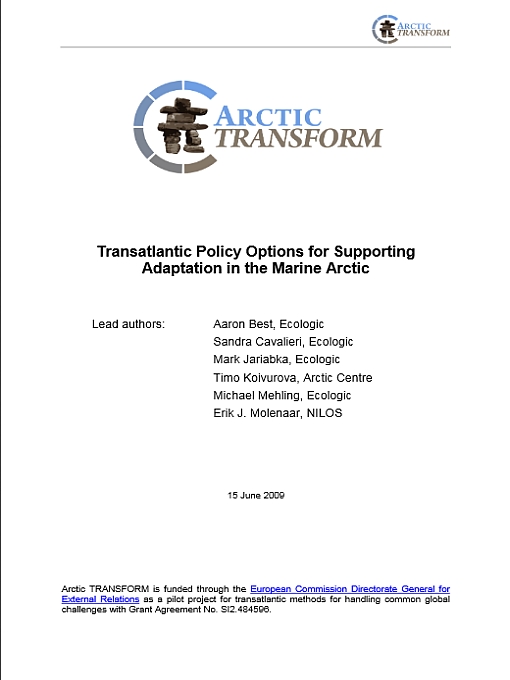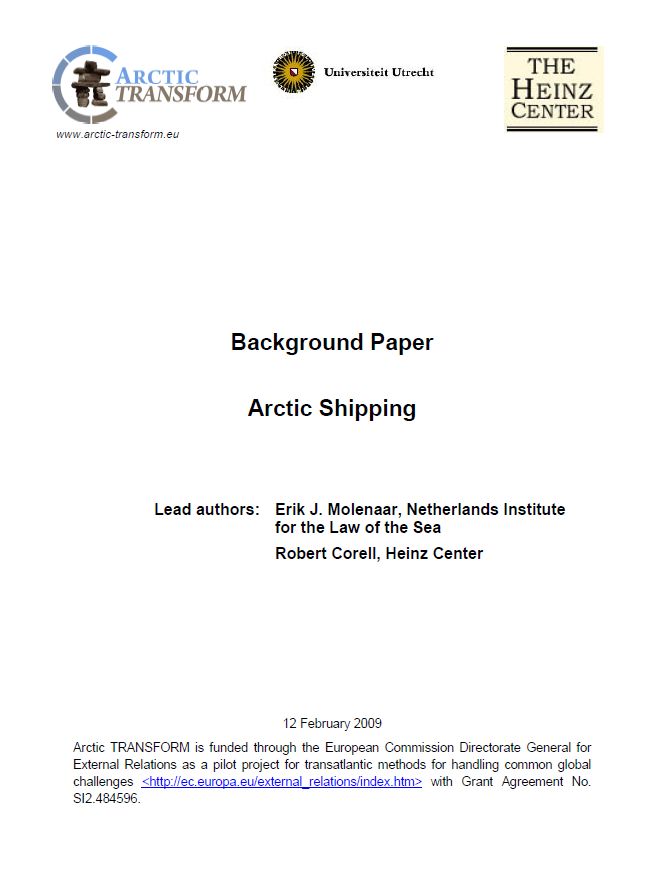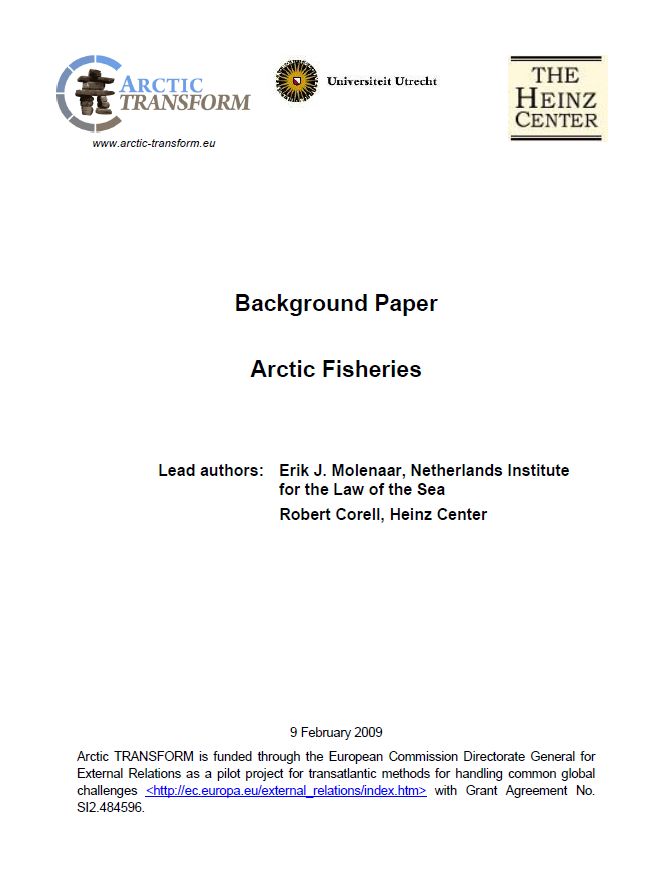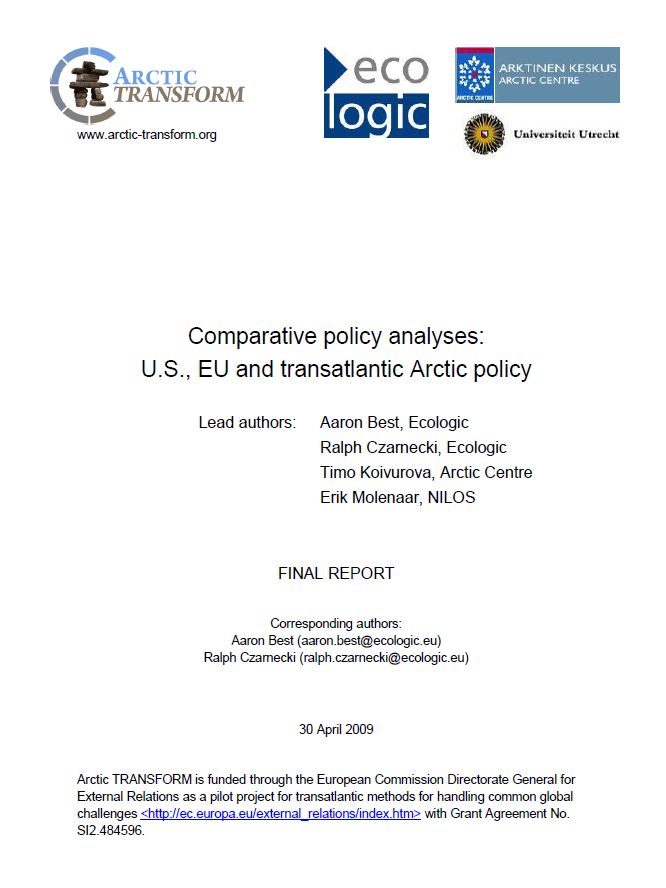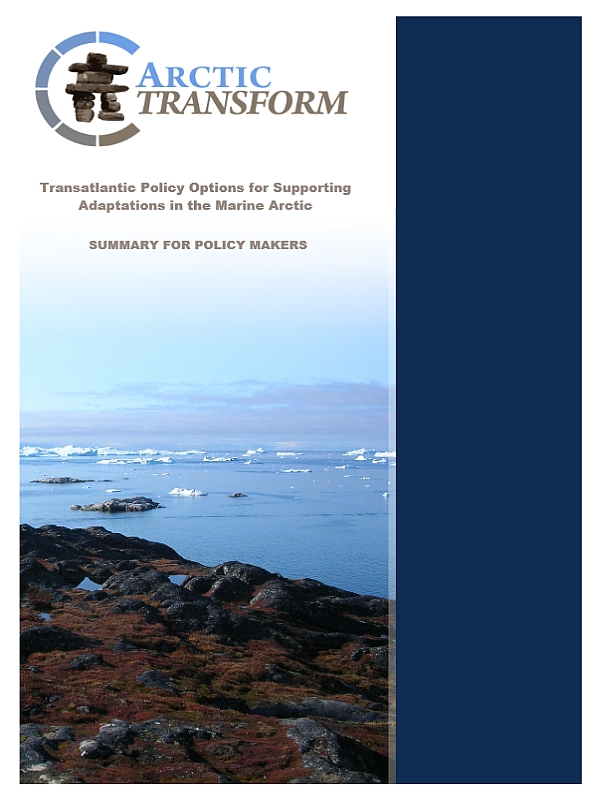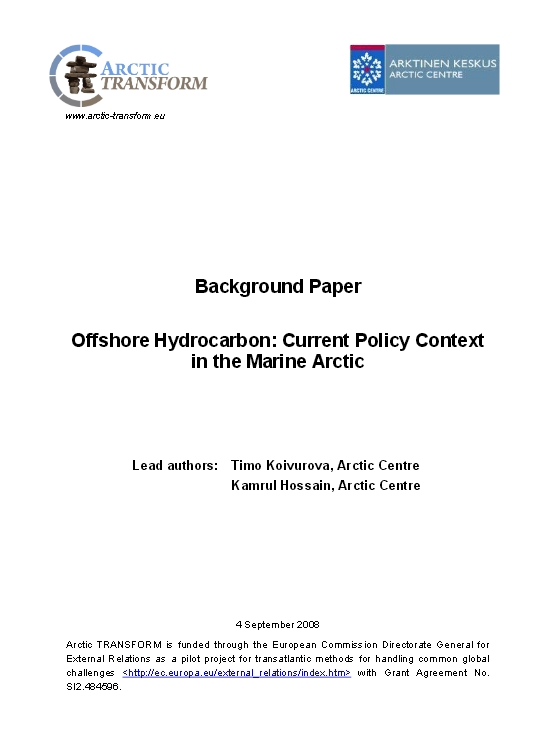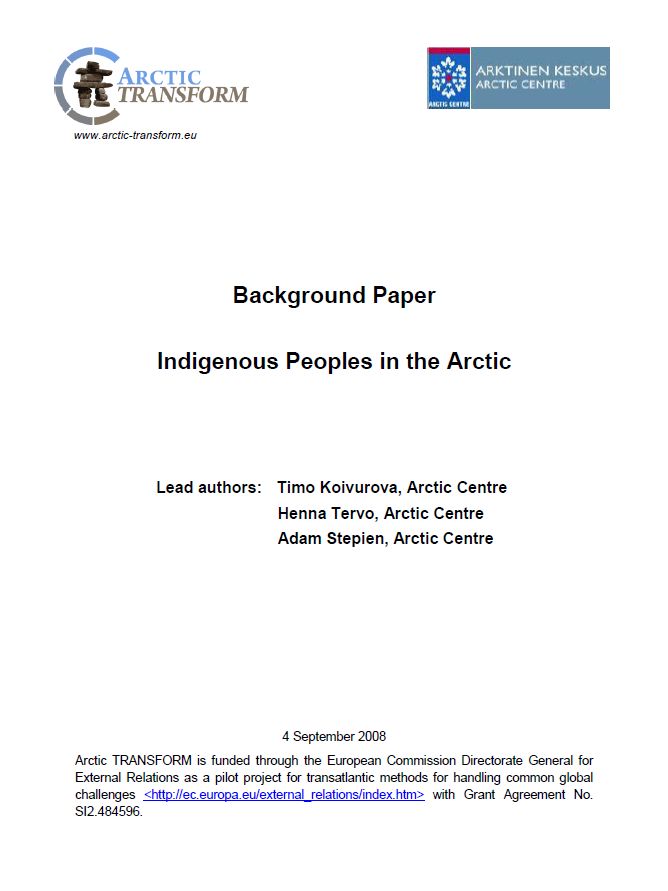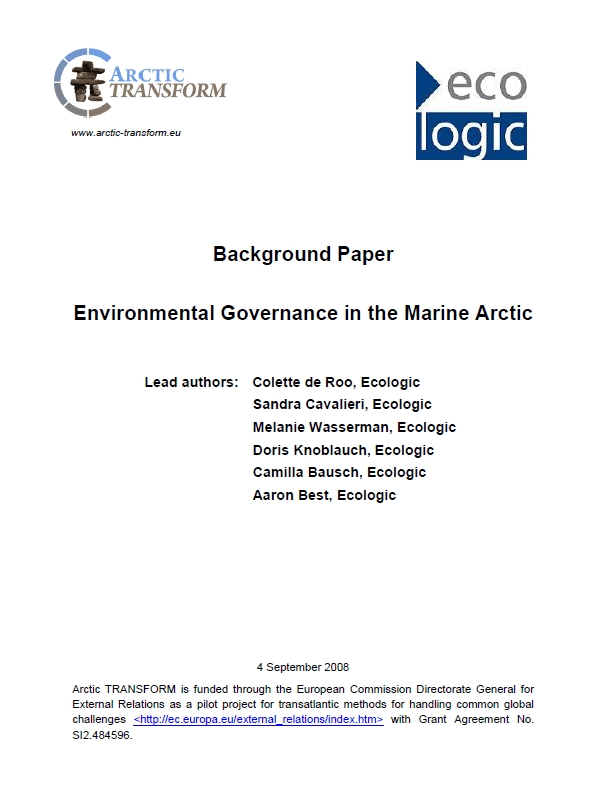Transatlantic Policy Options for Supporting Adaptations in the Marine Arctic (Arctic TRANSFORM)
- Project
- Duration
-
-
The Arctic TRANSFORM project developed transatlantic policy options for supporting adaptation in the marine Arctic environment based on input from more than 50 experts on Arctic policy in the areas of environmental governance, indigenous peoples, hydrocarbons, shipping, and fisheries. Emphasis was placed on cross-sectoral synergies, stakeholder participation, and governance options in the Arctic.
Arctic TRANSFORM explored the roles of EU and US marine policies in light of both the changing climate and the current political and legal complexities of the Arctic region. The challenges discussed included, i.a. increased access for shipping and oil- and gas- exploration, new threats to marine biodiversity and indigenous communities as well as international treaties and sovereignty disputes.
The project involved stakeholders in developing policy options for transatlantic dialogue. Emphasis was placed on involving a broad range of stakeholders to address the major issues identified in the Arctic Climate Impact Assessment (ACIA). Key project objectives included:
- To promote mutual exchange among EU and US policy makers and stakeholders on policies and approaches in the Arctic in the stakeholder working groups;
- To provide a comparative analysis of existing policies and make recommendations with substantial buy-in as to how to strengthen co-operation between the EU and US; and
- To encourage dialogue and thus improve conditions for further transatlantic policy development and more effective protection of the Arctic marine environment.
Arctic TRANSFORM described current policies and initiatives and collaborated closely with stakeholders to assess the potential impacts and viability of different policy options. The project team brought together EU and US experts with extensive networks and expertise in Arctic natural sciences, international law and US and EU marine and Arctic policy. During the course of the project, there were two stakeholder-based workshops and a final conference to present the policy options in Brussels, Belgium. Workshop and Final Conference Synthesis Reports, Expert Policy Papers and supporting Background Papers are available for download on the project website.





